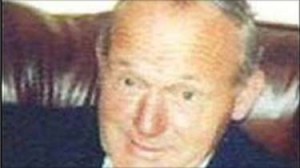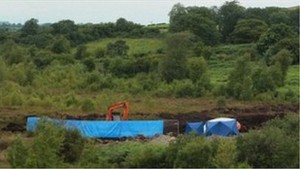Forensic archeology, to my surprise, is not what we often see on television. Although it involves people who have already passed away, often times we only have remnants of them left – maybe only a bone or two or small pieces of different bones. However, this branch of archeology is much more important than we give it credit for. It serves as a means of bringing about closure to the immediate families of the deceased, whether it is through a proper burial or information regarding their passing. As such, this branch of archeology is much more humanitarian in nature and can be thought of as a way of giving back to society. As we have learned, respect for the dead (often times in terms of a proper burial) is something that we hold to be very important and this dates back to circa 60,000 years ago, so this need for closure is not something new and we finally have a way of obtaining it in cases such as the one written here.
In this article from 2010, we see that forensic archeology was used to find a member of the Disappeared, people who were killed and had their bodies hidden during The Troubles, a period of thirty years marked by violence in Ireland. Unlike in television, this is not an easy process. It involves working with many parties, such as ICLVR and the family of the deceased, using tools like LIDAR, and a painstaking amount of time (months to years) on the field and mapping possible locations of the bodies. However, this work does pay off. The primary archeologist in the article said the following about his experience finding the body of one of the Disappeared, Charlie Armstrong:
“I’ve got to know Charlie’s widow, Kathleen, and their children very well over the years and know how much it means to them to bring Charlie home and give him a proper burial in consecrated ground. I feel proud that the team has helped them bring their many years of waiting to an end.”
While television often spreads misinformation on forensic archeology, it brings the field into the eyes of the public, much like The Big Bang Theory does. Personally, I would not be interested in physics if it weren’t for the introduction to The Big Bang Theory and Michio Kaku (a physicist and public advocate of science). And in both fields, we see an increase in enrollment of students.
——————————————————————————————————————–
If you would like to know more about The Troubles, please take a look below:
BBC News. BBC, n.d. Web. 30 Oct. 2015. <http://www.bbc.co.uk/history/troubles>.
There is also a newer article from the BBC that has pointed to the discovery of other members of the Disappeared below:
“The Disappeared: ‘More than One Body’ Found during Search for Joe Lynskey – BBC News.” BBC News. N.p., n.d. Web. 30 Oct. 2015. <http://www.bbc.com/news/world-europe-33275457>.
The original article which I referenced is below (this is also the source of my images):
“Using Forensic Archaeology to Find the Disappeared – BBC News.” BBC News. N.p., n.d. Web. 30 Oct. 2015. <http://www.bbc.com/news/uk-northern-ireland-11426538>.


